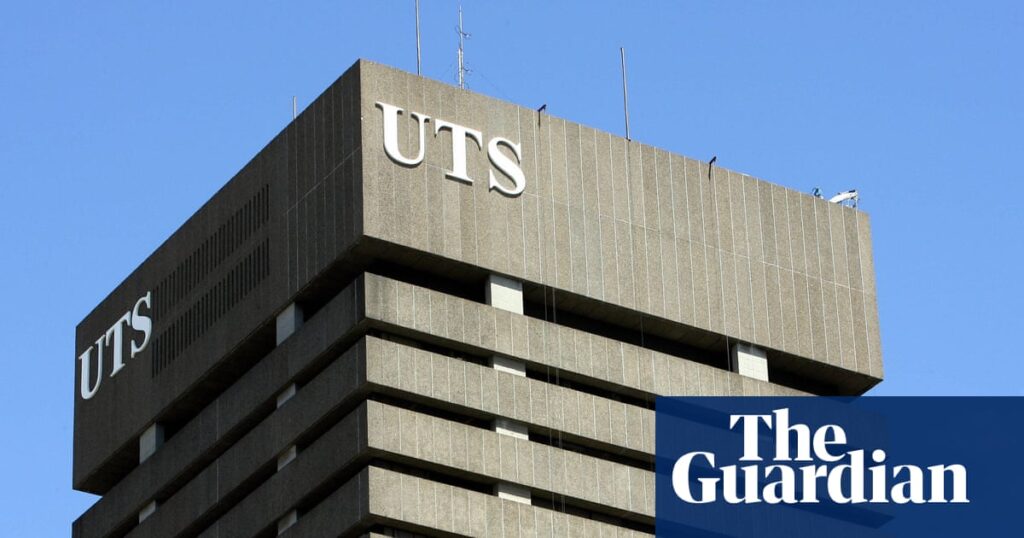
The University of Technology Sydney (UTS) has announced a controversial plan to close its teacher education program and public health school as part of an extensive restructuring effort aimed at addressing financial challenges. The sweeping changes, revealed on Wednesday, involve cutting more than 1,100 subjects and are part of a broader strategy to reduce the university’s expenditure by $100 million annually.
This development follows UTS’s earlier decision to eliminate approximately 400 jobs, with the current proposal suggesting a reduction in the number of schools from 24 to 15. Under the plan, the school of professional practice and leadership would be closed, and the faculty of law, business school, and transdisciplinary school would be merged. The school of public health would be restructured into a discipline within a newly named “school of health and human performance.”
Financial Pressures and Strategic Realignment
The proposed cuts come after UTS has faced five consecutive years of financial deficits, escalating operational costs, and shifts in government policy. The university has emphasized the necessity of these measures to repay a $300 million bond and to fund essential capital and strategic needs over the next five years. According to UTS, discontinuing 167 courses and 1,101 subjects, which constitutes 31% of its offerings, is crucial for financial recovery.
UTS Vice-Chancellor Prof Andrew Parfitt stated, “Our commitment to public education and focus on the student experience is paramount,” adding that the university is focused on achieving a “sustainable future” to continue delivering research outcomes.
Community and Academic Reactions
The announcement has sparked significant backlash from the academic community and beyond. Dr. Sarah Kaine, chair of a New South Wales legislative council inquiry into the university sector, criticized the proposed closures as “a direct threat to the public mission of higher education” in the state.
“These are not just academic disciplines – they are pillars of our public infrastructure,” Kaine said. “To dismantle them in the middle of a teacher shortage crisis and ongoing public health challenges, particularly in Indigenous communities, is indefensible.”
The National Tertiary Education Union (NTEU) NSW division secretary, Vince Caughley, also condemned the plan, describing it as an “abandonment of their duty to staff, students, and the wider community.” He pointed out that UTS recorded record income in 2024, with staff costs lower in real terms than in 2019, and argued that the university’s own projections showed a return to surplus by 2029 without the cuts.
Implications for Staff and Students
Under the proposal, 134 full-time staff positions are slated for redundancy, with significant impacts on the design and society, business, and health faculties. The plan has been met with resistance from UTS staff, who have been given four weeks to provide feedback. Dr. Sarah Attfield, UTS branch president of the NTEU, expressed concerns over the lack of transparency and consultation in the decision-making process.
“The lack of transparency, the decisions made without consulting staff and students, and the shutting down of valid criticism have all led to staff losing faith in the leadership at UTS,” Attfield said.
Meanwhile, the university has assured that current students will be able to complete their courses, with any discontinuations applying from the next academic year. Prof Parfitt emphasized efforts to “limit impacts and ensure opportunities for engagement, consultation, and feedback” to alleviate uncertainty and stress within the UTS community.
Looking Ahead
The restructuring proposal has reignited debates over the role of universities as civic institutions versus corporate entities. Dr. Kaine noted, “Universities are not corporations. They are civic institutions with a duty to serve the public good. We must protect the disciplines that serve our society – not abandon them in pursuit of short-term financial targets.”
The state government inquiry into university governance, transparency, and the public value of higher education was prompted by a petition signed by thousands of staff and students, highlighting the perceived crisis in the NSW university sector due to “drastic restructures.”
As UTS navigates this turbulent period, the outcomes of the proposed changes and the feedback from the academic community will likely shape the institution’s future and its role in public education. The university’s leadership faces the challenge of balancing financial sustainability with its commitment to educational excellence and public service.







